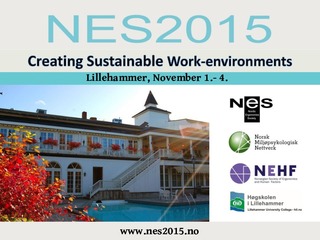Difference between normative and descriptive concepts on theevaluation of accident narratives
| dc.contributor.author | Øvergård, Kjell Ivar | |
| dc.contributor.author | Paulsen, Maren | |
| dc.contributor.author | Nazir, Salman | |
| dc.date.accessioned | 2015-11-26T09:08:53Z | |
| dc.date.accessioned | 2018-02-23T12:11:11Z | |
| dc.date.available | 2015-11-26T09:08:53Z | |
| dc.date.available | 2018-02-23T12:11:11Z | |
| dc.date.issued | 2015 | |
| dc.identifier.citation | Fostervold, Knut Inge; Johnsen, Svein Åge Kjøs; Rydstedt, Leif W; Watten, Reidulf G. [Eds.] Creating Sustainable Work-environments, Proceedings of NES2015 p. A3-6-A3-10, Norwegian Society of Ergonomics and Human Factors - NEHF, 2015 | nb_NO |
| dc.identifier.isbn | 9788299574754 | |
| dc.identifier.uri | http://hdl.handle.net/11250/2486740 | |
| dc.description.abstract | Accident investigations are important tools in increasing industrial safety. In this paper we report an experiment evaluating the effect of evaluative concepts such as adjectives and adverbs from maritime accident narratives. We hypothesized that purely descriptive accident narrative would lead to more positive evaluations involving less blame against the involved person. An interaction effect indicated that descriptive narrative where more favourably evaluated than the normative narrative on questions involving the ability to understand the reasons and actions. The opposite was found for evaluations not involving questions on ‘understanding’, thus indicating a differential effect of evaluative concepts in accident narratives. | nb_NO |
| dc.language.iso | eng | nb_NO |
| dc.title | Difference between normative and descriptive concepts on theevaluation of accident narratives | nb_NO |
| dc.type | Chapter | nb_NO |
| dc.type | Peer reviewed | nb_NO |
| dc.date.updated | 2015-11-26T09:08:53Z | |
| dc.identifier.cristin | 1292701 |
